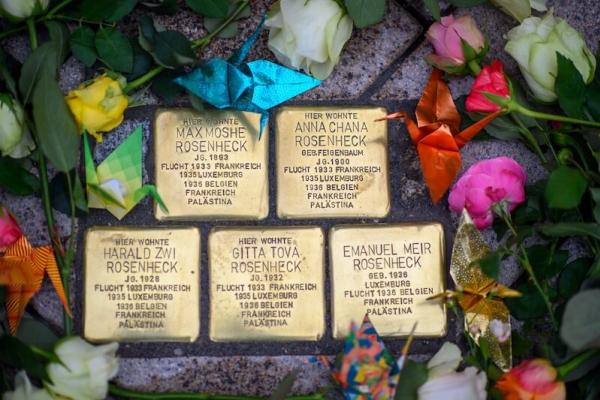In 1935, across the river from where my family lived, the Nazi-run parliament unanimously passed the Reich Citizenship Law. A deepening of the already emerging racial regime, this law categorized who was a German citizen, initially stripping those of Jewish descent of their citizenship. Proof of Aryan descent became essential to maintain or gain citizenship, and this was done primarily through both ancestral birth certificates and ecclesial baptismal records. This use of sacramental records meant that, according to historian Kyle Jantzen, “Churches became the most important site for the implementation of Nazi racial segregation.”
With their citizenship stripped from them and sensing the deadly direction Germany was headed, my great-grandmother acquired forged baptismal certificates and the family fled. Initially escaping to Palestine, they eventually made their way to the U.S. I was raised Christian. But I still struggle with this, now being a part of the faith that inflicted displacement upon my family. I lack a coherent emotional grasp of this story, but I can feel the rough shape of the loss. That loss is unexpectedly present, something I stumble over. But in this stumbling is a small, personal grace that has transformed my faith, bringing me to worship a God who is not simply for the oppressed but engages in the work of liberation.
Read the Full Article

